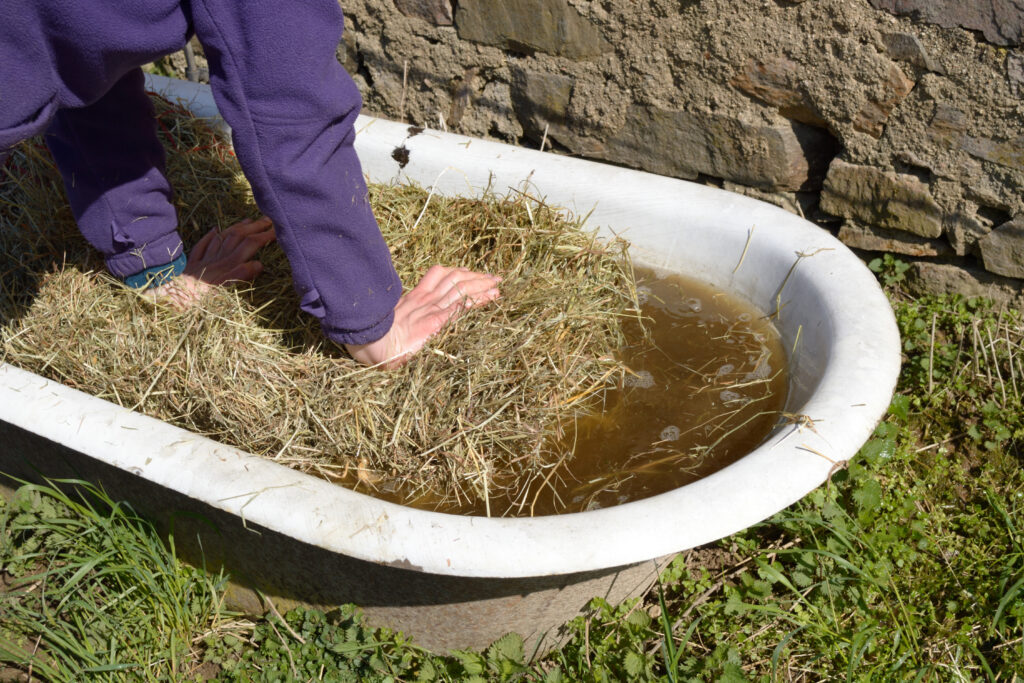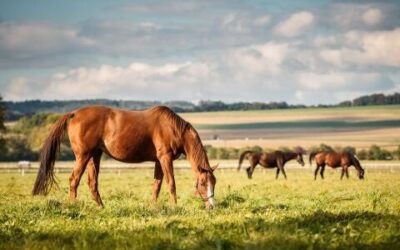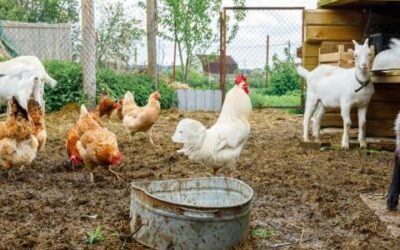
For horses with respiratory issues and metabolic concerns, soaking hay is a commonly prescribed remedy. In fact, many equestrians consider it a required piece of their horse husbandry practices. There are a number of reasons why equestrians may choose to or not to soak hay for their horses – keep reading to learn more.
Benefits
There is a reason that many equestrians turn to soaking hay for their horses. It can impact your horse’s health in a positive way while also improving the quality of your horse’s life.
- Hydration: Soaking the hay naturally increases your horse’s water consumption, keeping them more hydrated, which can reduce the risk of colic.
- Decreased Dust: For horses with respiratory conditions, soaking the hay dramatically decreases the airborne dust content. If you have a horse with heaves, soaking hay is generally recommended to keep your horse breathing comfortably.
- Starch Content: Soaking the hay for 25-30 minutes prior to feeding has been shown to decrease the amount of sugars and starch in the hay. This is especially important if you have a horse that has a metabolic condition or insulin resistance. Instead of soaking, another option is to feed low-starch hay for horses.
Concerns
While there are a number of benefits to soaking hay for horses, it can also come with some downsides.
- Messy: Soaking hay can be a messy procedure, with the potential to spill water all over the barn aisle.
- Time: The process of soaking hay can be quite time-consuming. According to Ashley Fowler, Ph.D., “ Recommendations for hay soaking times range from 30 minutes to an hour to reduce nutrient concentrations for horses with special needs while still being time-efficient.”
- Frozen Hay: In winter conditions, hay that is soaked can freeze if it is not consumed quickly. Many horses choose not to eat the hay once it has frozen, which can make soaked hay difficult to feed in the winter.
- Rancid Hay: Conversely, hay fed during the summer months can mold or turn rancid if not eaten in a timely manner. Make sure that you clean up your horse’s remaining hay after each feeding to avoid serious health concerns.
For those who prefer not to soak their horse’s hay, consider feeding Hi-Fiber GOLD from Lucerne Forage Products. High-temperature dried and dust extracted, it is virtually dust-free and mold-free for horses with respiratory concerns. Additionally, it is low in starch and sugars, making it very appropriate to feed to horses with metabolic and weight concerns.




